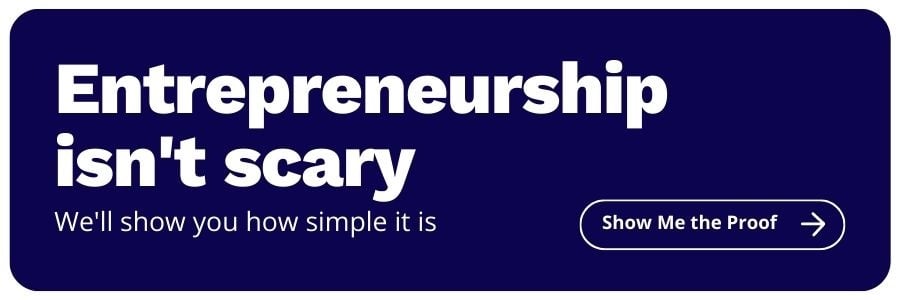Email Marketing 101 For Independent Financial Advisors
Share this
Unless you come from a communication or marketing background, launching and running a firm can be a whole new ballgame when it comes to your communication and marketing strategies. One area of focus that may feel like a bit of a black hole is email marketing. While it sounds simple—it’s marketing via email, right?—there are a lot of nitty-gritty details to dive into and learn. In this blog, I’ll share some of the core email marketing concepts and terms to help you have a better grasp of the ins and outs of email marketing.
Email Marketing
Let’s start off simple… what exactly is email marketing? Thankfully, email marketing is exactly what it sounds like and is marketing conducted by sending emails to both prospects and customers. Email marketing not only helps you connect with your audience and build relationships but also promotes your brand and helps increase sales. There are a variety of email marketing tactics out there, such as selling products (or, in a financial advisory sense, selling your service), sharing firm updates, or using email to tell a story on how your services have helped others.
Email List
Continuing to keep things simple, an email list is also exactly as it sounds. An email list is the subscriber list you use to send your emails. An email list is one of the most important elements of your email marketing plan because, spoiler alert, you can’t send emails without having an actual list of subscribers to send emails.
Lead Magnet
A lead magnet is an item you giveaway for free in exchange for an email address. This is a great way to help build your email list. The fantastic news about lead magnets is they can be anything you want them to be, as long as they provide value to website visitors. Some examples of lead magnets include white papers, case studies, e-books, or webinars. The sky’s the limit.
Email Service Provider (ESP)
An email service provider, also known as an ESP, is a company that offers email marketing software and services. There are many types of ESPs, including Mailchimp, MailerLite, and HubSpot, just to name a few. A big benefit of using an ESP is that the majority of these software providers offer email templates for different types of messages, whether you’re welcoming new subscribers or writing a newsletter. An ESP makes it easy to essentially plug your content into an existing template, change the colors and font to match your brand, add relevant logos and images, and hit send.
Call-to-Action (CTA) Button
A call-to-action button, also known as a CTA, is the action you want email subscribers to take in any email you send. For example, if you send out an email encouraging folks to register for an upcoming webinar, you’d want to have a CTA that is driving them to the webinar registration landing page. The text could be “Register Now” or “Save Your Spot,” and when readers click it, they are directed to the landing page to register for the event.
Preview Text
Preview text is the message you see next to a subject line in your inbox. If you use Gmail and jump into your inbox, you’ll see subject lines are bold, and preview text directly follows it and is unformatted. Preview text can be used to provide additional insight into what the content of an email includes or used as a continuation of your subject line.
Personalization Token
When sending emails, personalization tokens allow you to customize the messaging to help make the content, well, more personalized. Personalization tokens represent contract properties within your CRM. A common example is using a personalization token that will insert a reader’s first name into an email. For example, instead of starting an email off with “Hi there,” using a first name personalization token will allow the email to read “Hi <Insert Name>.” Since personalization tokens pull data directly from your CRM, it’s important the information you have in your database is accurate and up-to-date to avoid any awkward email encounters.
Click-Through Rate
Email metrics are a world of their own, but click-through rate is one of the most important to understand and track. You may have heard of click rate before, but click-through rate can provide a better picture of how well your emails perform.
While click rate is the percentage of people who clicked a link in an email out of everyone who received the email (regardless of if they even opened the email), click-through rate looks at the percentage of recipients who clicked a link in the email out of those who actually opened the email. The click-through rate provides a clearer picture of how well your emails are performing because it focuses specifically on the level of engagement from those who are actually opening and reading your emails.
Client Avatars
A client avatar is a fictional and general representation of a company’s ideal prospects and customers. Client avatars are incredibly valuable to have as part of your marketing strategy as your firm develops and grows because they will allow you to create a detailed, lifelike description of someone who embodies the characteristics of your niche. You’ll better understand prospects' needs, wants, goals, and pain points so you can communicate the right message to them at the right time.
A/B Testing
An A/B test is an experiment where you use different versions of an email to see how different changes may impact the results. You can A/B test subject lines, the time and day of a send, call-to-action copy, and more. The important note is only to test one item at a time, so you know exactly what’s working and what’s not working. A/B testing is a great way to optimize your time, emails, and overall marketing strategy.
And there you have it—a list of common email terms to help get you started on your email marketing journey. Happy sending!

About the Author
After getting her start as a Network Navigator on Team XYPN, Lindsey White now manages all things email in her aptly titled role of Email Marketing Manager. She is (almost) as passionate about subject lines and open rates as she is about growing the movement; lucky for her, she gets to focus on all of these things here at XYPN, where she crafts brag-worthy emails like it’s her job—because it is.
Share this
- Advisor Blog (694)
- Financial Advisors (221)
- Growing an RIA (119)
- Digital Marketing (87)
- Marketing (84)
- Community (81)
- Business Development (76)
- Start an RIA (76)
- Coaching (72)
- Running an RIA (70)
- Compliance (69)
- Client Acquisition (65)
- Technology (64)
- XYPN LIVE (59)
- Entrepreneurship (58)
- Sales (49)
- Practice Management (44)
- Client Engagement (41)
- Bookkeeping (40)
- Investment Management (40)
- XYPN Books (38)
- Fee-only advisor (37)
- Employee Engagement (31)
- Lifestyle, Family, & Personal Finance (31)
- Scaling an RIA (30)
- Financial Education & Resources (26)
- Client Services (25)
- Journey Makers (21)
- Market Trends (21)
- Process (14)
- Niche (11)
- SEO (9)
- Career Change (8)
- Transitioning Your Business (7)
- Partnership (6)
- Transitioning To Fee-Only (4)
- Sapphire (3)
- Social Media (3)
- Transitioning Clients (3)
- Emerald (2)
- Persona (2)
- RIA (2)
- Onboarding (1)
Subscribe by email
You May Also Like
These Related Stories

Everything Financial Advisors Need to Know About Email Marketing
Feb 22, 2021
9 min read

How to Create a Brand Book for Your Firm
Nov 26, 2018
5 min read






